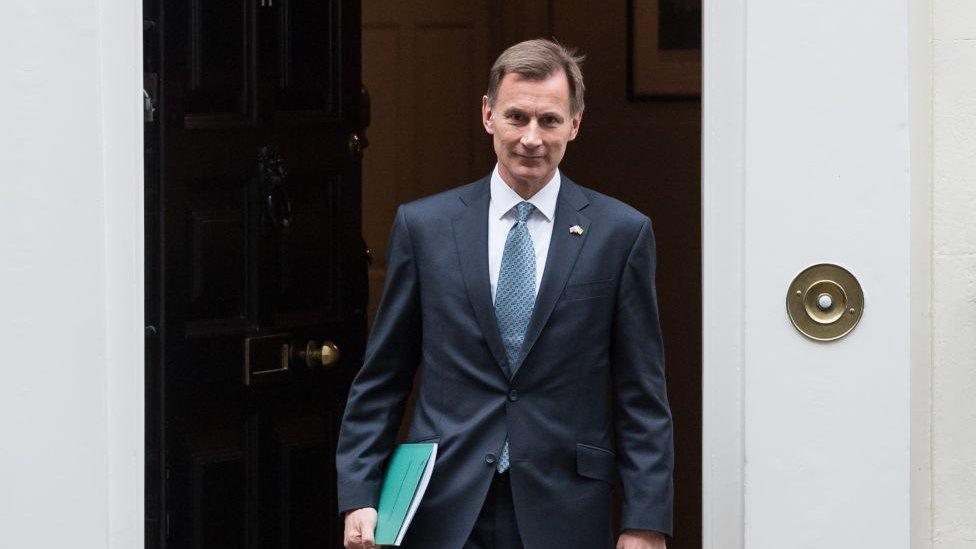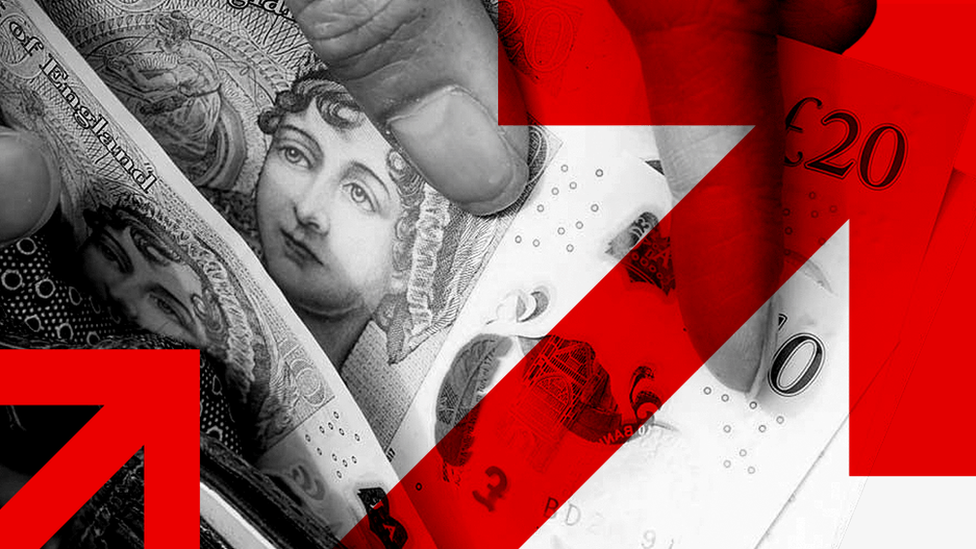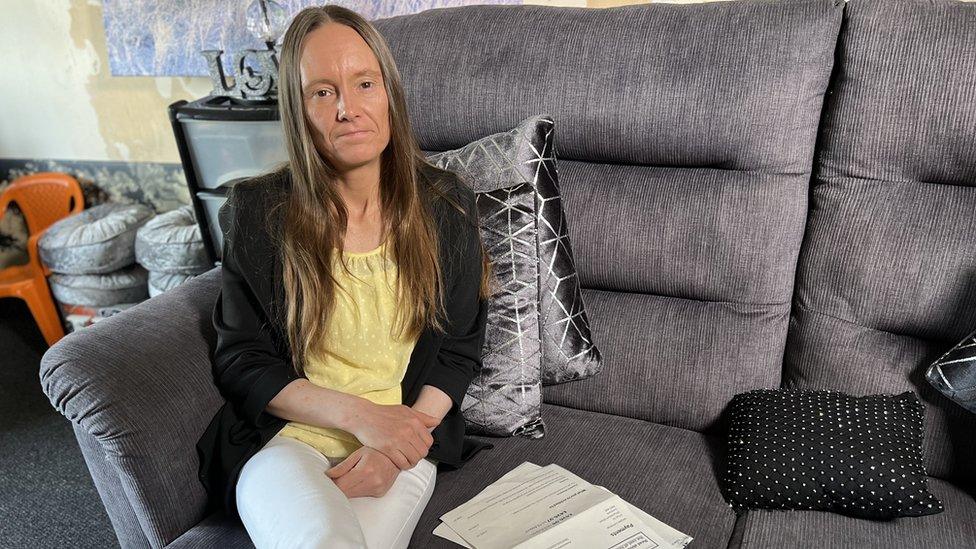Cost of living: Parents-to-be spend weeks without electricity
- Published

Anthony Moore, 22, is on a zero-hours contract and relies on universal credit
A man who relies on universal credit has described how he and his pregnant girlfriend recently spent two weeks without electricity.
Anthony Moore, from Llangollen in Denbighshire, said his income did not cover life's basics.
He gets support from the Llangollen Foodshare, a charity whose founder is calling for working-age benefits to be increased in line with inflation.
The UK government said it "prioritised those with the least".
Mr Moore, 22, is on a zero-hours contract with an employment agency.
He said he stopped being offered jobs after his mental health conditions, which include post-traumatic stress disorder (PTSD), external, caused him to have flashbacks in the workplace.
"I like to earn my own money, I like to be able to go out doing something and have eight hours of structure for the day," he said.
"But when I can't do that it brings me down."
Mr Moore relies on universal credit but said he and his partner, who is six months pregnant, struggle to afford food and energy bills.
"A couple of weeks ago we had to go without electric for nearly two weeks because the money was that low and we had to try and clear the debt.
"By the time we did clear the debt we still didn't have enough money to put on the electric. It was not good."
Mr Moore said he received help from the Discretionary Assistance Fund, external, which Welsh local authorities can use to provide emergency payments to people experiencing "extreme financial hardship".
Families 'in despair'
Steph Mitchell, founder of the Llangollen Foodshare, said she saw many families in "despair" over the cost of living crisis.
She said the "chronic stress" was "badly affecting" people's mental health.
She started the Llangollen Foodshare as a food surplus scheme four years ago, using the food that nearby supermarkets would otherwise have discarded.
Since then, she said, need had "exploded" in the area.
"A lot of people coming are working people. Some of them working several jobs, who come in saying I've never had to do this before in my life," she said.

Mum-of-four Heidi, who is a cleaner, said her financial situation left her feeling "inadequate as a parent"
Mum-of-four, Heidi, also gets support from the charity.
The 41-year-old cleaner recently started a part-time academic course because she wants to become a social worker.
She is struggling with debt and said her situation was "scary and frustrating" and left her feeling "inadequate as a parent".
"My children are not supposed to be in this situation and I'm trying to get to university so that I can get a decent job so that we aren't in the position we're in any longer," she said.
On Wednesday, 22 November, Chancellor Jeremy Hunt will deliver the UK government's Autumn Statement, which updates MPs on the state of the economy and makes some tax and spending announcements.
One of those will be to reveal the amount by which benefits will increase next April.

Chancellor Jeremy Hunt will deliver the UK's Autumn Statement on Wednesday 22 November
The UK government normally increases benefits according to the inflation rate of the previous September, which this year was 6.7%.
But, so far, Mr Hunt has refused to commit to such an increase.
Simon Jones, of the mental health charity Mind Cymru, called on the chancellor to maintain that link.
"The decision over how to heat the house, how to feed the family, how to pay for those essentials is going to have a huge impact on people's mental health," Mr Jones said.
"Anything that doesn't bring up the level of universal credit in line with inflation really means that they're not getting the money that they need in order to survive in a lot of cases, and that adds worry and stress as well as a very practical financial gap that that people are having."
The Secretary of State for Wales, David TC Davies, said it was not appropriate for him to "start giving away things that might or might not be in the Autumn Statement".
"What I can point to," Mr Davies said, "is our record in government".
He added: "At all times we've prioritised those with the least in society and that certainly isn't going to change."
How much will universal credit increase by?
There are more than a quarter of a million households in Wales on universal credit, so the question of how much it will increase by next April is an important one for a lot people.
With some benefits there is a legal obligation on ministers to link the increases to inflation but others, like universal credit, are discretionary.
Usually, the UK government increases benefits in April by the previous September's inflation rate, which would mean an increase of 6.7% in April 2024.
But so far, ministers have not committed to this increase and the chancellor has spoken of "difficult decisions" ahead.
Some reports have suggested that he could choose the October inflation rate, which at 4.6% is considerably lower than the figure for September.
Doing this would save the treasury money, while still maintaining a link to inflation.
But with so many families still struggling with the cost of living, it would be a controversial decision.
If you've been affected by any of the issues raised in this article, information and support is available on BBC Action Line.

THE CRASH DETECTIVES: Every serious incident on the road requires forensic examination
CROSSBOW KILLER: Investigating the case of a Welsh murder stranger than fiction

- Published13 May 2024

- Published22 November 2023

- Published14 September 2023
